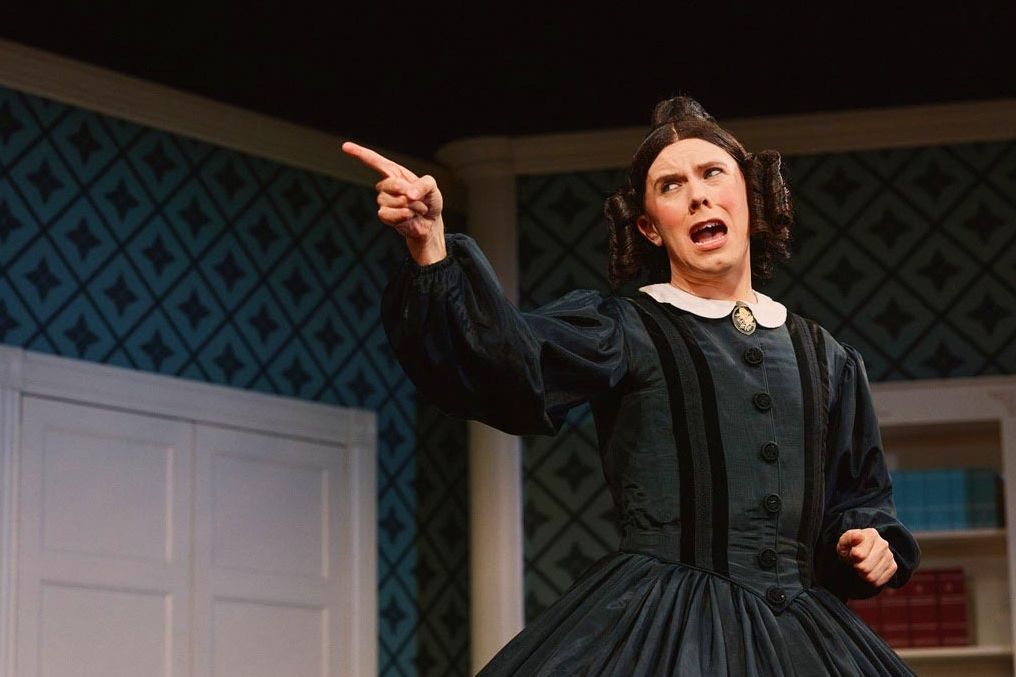Portland Experimental Theatre Ensemble Is Transporting Chekhov to the Arctic

Image: Kailey Whitman
When a 44-year-old Anton Chekhov succumbed to tuberculosis in a German spa, he was working on a play about the Arctic. The Cherry Orchard, which tells the story of an aristocratic family uneasily coping with the rise of the Russian middle class, had premiered six months earlier. It would become the legendary playwright’s final work for the stage.
“That got me thinking, ‘Well, OK, he was already headed north,’” says Alice Reagan, a freelance theater director and associate professor at Barnard College. “Maybe there’s something in that location for us.”
This summer (after the omicron variant delayed its original January opening), Reagan will direct The Cherry Orchard for the Portland Experimental Theatre Ensemble—she’s worked with the company before, and met one of its founding members, Rebecca Lingafelter, when both were in grad school at Columbia. It will be the third production in PETE’s ongoing Chekhov project, following The Three Sisters in 2014 and Uncle Vanya in 2018. Instead of taking place, as written, on a spacious country estate that sports the titular orchard, Reagan’s production will be set in an Arctic expanse gripped by climate disaster.
It’s a risky transposition, and Reagan and PETE are well aware. A number of factors (beyond Chekhov’s unfinished Arctic play) drove them to the concept: Reagan directed a new play at Barnard called On Loop that shaped her vision of nature as a twin space of refuge and danger; recent fires and floods have forced many Americans to meet climate change at their doorstep. Also, the company wanted to do something different.
“There have been world-changing productions of The Cherry Orchard. I wanted to give us a chance to step out from that shadow and make something of our own,” Reagan says. To that end, this Cherry Orchard will also lose half of Chekhov’s original characters, including fan favorite Firs, to focus more squarely on the family at its center.
As it has for each of its past Chekhov productions, PETE will work from a translation by Lewis & Clark theater professor Štĕpán M. Šimek, whose words deliberately retain the ruggedness of Chekhov’s original language. In contrast with the typically florid, Edwardian translations most Anglo productions use, Šimek’s emphasizes the text’s “muck, mud, and poverty” (as Lingafelter puts it), which will help the company shoot for a more visceral telling than, say, the dully handsome 2016 Broadway revival starring Diane Lane.
The goal, say Reagan and PETE, is to give a funny, physical, immediate sense of how people respond to paradigmatic change. Jenny Ampersand’s costumes had not, at press time, been set in stone, but they are likely to incorporate lavish fur coats worn over skimpy bathing suits—a wry nod to the characters’ commitment to fashion even in apocalypse. “[Chekhov’s] other plays are more hermetically sealed around the house, but the characters in this one are talking more about where they fit into the world,” Reagan says. “The porousness of the story was really attractive.”
The Russian master, it would seem, was ready to leave the country estate behind for colder pastures. PETE is just pushing him out the door.
The Cherry Orchard
7:30 p.m. Wed–Sun, June 24–July 9 | Reed College Performing Arts Building, $20–30




